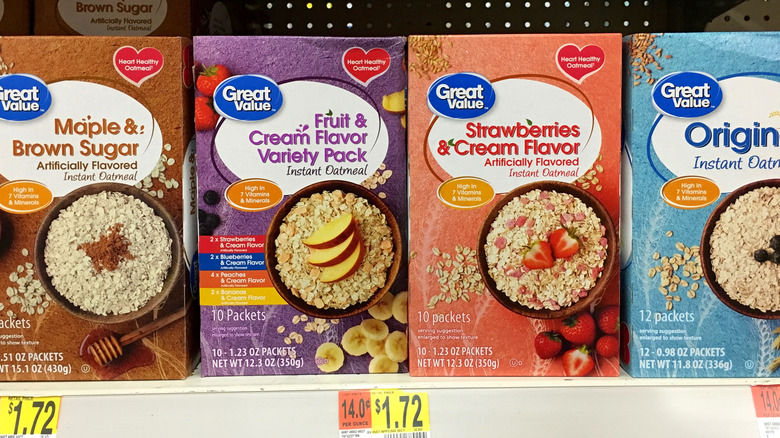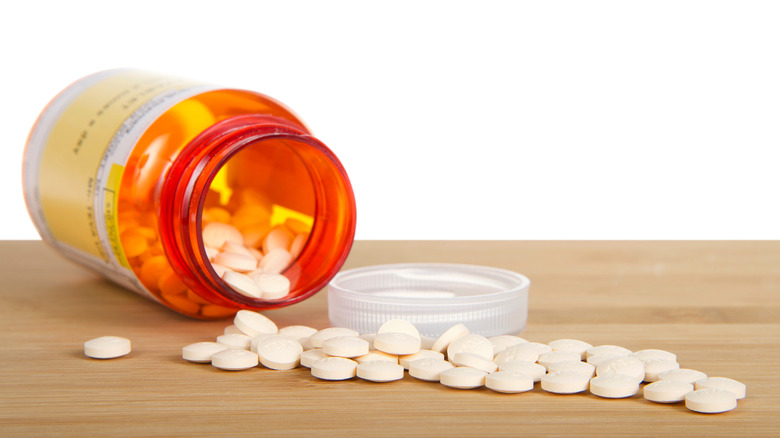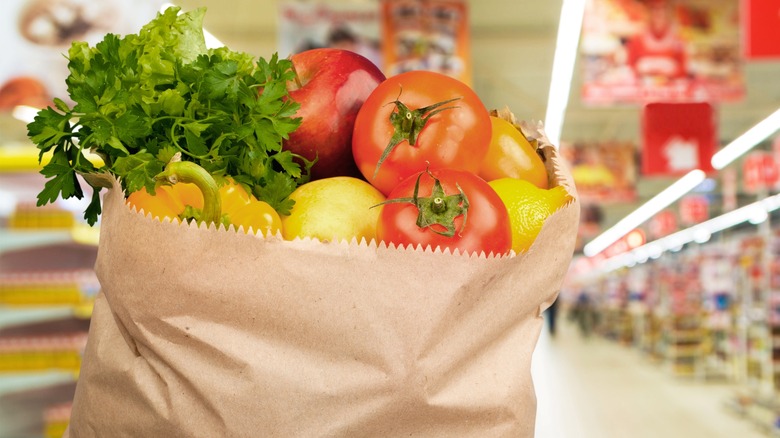The Real Reason Generic Products Are So Much Cheaper
When you walk into a store, it's hard not to ask yourself why generic products are so much cheaper. From flour and sugar to medications, these goods are often half the price of their brand-name counterparts. Store brand groceries, for example, cost about 25% less than popular brands, reports Business Insider.
One reason is that big brands spend millions on marketing and advertising, so they need to offset those costs. Second, it takes a lot of investment to develop and launch a new product — even if that product already exists on the market. Manufacturers still need to conduct research and testing, obtain licensure, and apply for permits. Many times, they pass on these costs to consumers.
The same goes for generic drugs. As the FDA notes, these medications are up to 85% cheaper compared to the brand-name version, due to market competition. However, they still undergo extensive research to ensure they meet the same standards as their brand-name equivalents. As a consumer, it's important to know when to buy generic and when to pay more for the things you need.
Why generic products are cheaper than name brands
No-name products used to have a bad rap in the '70s, says Business Insider. Back then, their quality was questionable, but things have changed over the past decades. Nowadays, generic products are often just as good as name brands. The reason they're cheaper is that most store brands spend less on research and development, marketing, and advertising than national brands.
Food companies, for instance, test hundreds of ingredients and recipes to create their products. They also invest millions in branding. From packaging and labeling to online advertising, every detail matters. Store brands simply stick new labels to existing products to keep the costs low, notes Money Crashers. This allows them to pass on the savings to their customers.
As far as medications go, generic drugs have the same strength as their brand-name counterparts. When a new drug is launched, its manufacturer has already spent a lot of money on research, testing, advertising, and so on. The final product is protected by a patent that prohibits other companies from selling the same drug under a different name (via the FDA). Once the patent has expired, anyone can manufacture and sell the product. Generic drugs must meet the same quality and safety standards as the original version.
When to buy generic vs. brand-name products
Now that you know why generic products are so much cheaper, you may wonder if it's worth paying more for certain goods. In one study, more than 50% of generic brands proved to be just as good or even better than national brands, reports Money Crashers. However, not all generics are created equal. While it's perfectly fine to buy generic flour, sugar, or bottled water, some branded products are worth the extra money. For example, many consumers find that store-brand paper products and liquid detergents don't match the quality of their branded counterparts (via Business Insider).
Generally, it's okay to go generic for staple foods, such as salt, cooking oil, rice, oats, nuts, pasta, and beans. The same goes for vinegar, spices, and frozen fruits or vegetables. Since these products have just one or two ingredients, they're often equal to their brand-name versions. Store-brand plastic wrap, trash bags, freezer bags, and coffee filters are all a good choice.
Some foods, such as generic milk, eggs, and yogurt, might be even better than their brand-name counterparts. As Maria A. Bella, MS, RD, CDN told Eat This, Not That!, these products often come from local suppliers and therefore may be fresher and less processed. Bella also says that generic green tea, plant-based milk, chia seeds, and dried fruits are no different from their branded versions. If you still want to buy brand names, don't shy away from using coupons to get a good deal.


